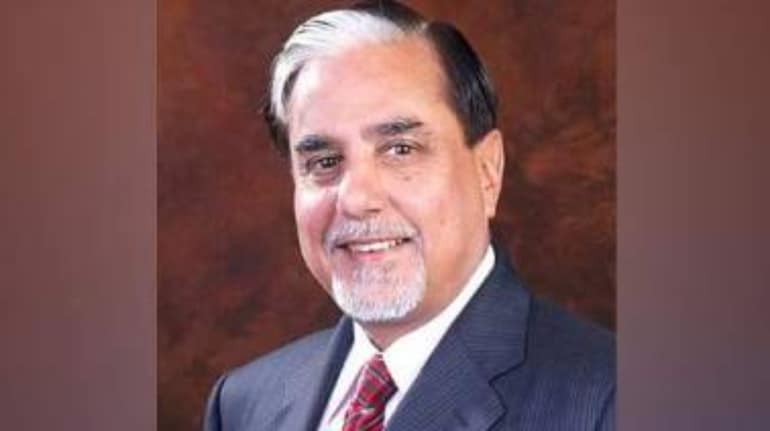



Zee Entertainment Enterprises Limited (ZEEL) Chairman Emeritus Subhash Chandra on Thursday said that the promoter group is not planning to raise any debt or pledge their shares to finance the proposed Rs 2,237 crore fund infusion into the company through warrants.
Chandra’s comments came in an over 90 minute long call with analysts and investors, which the company said is part of its strategy to improve corporate governance and outreach to shareholders.
“No, we are not taking any loans, nor are we pledging any shares. The funds being utilised are our own — they are recoveries from promoter-linked entities, which have come back to us,” Chandra told analysts and shareholders.
The outreach to shareholders comes at a time when the promoter fund infusion into ZEEL through warrants has been questioned by proxy-advisory firms, a move which would increase the shareholding of Goenka and his family to 18.39 percent from 3.99 percent. ZEEL shareholders will vote on this special resolution from July 6 to July 9.
The governance advisers have opposed ceding greater control to chief executive officer (CEO) Punit Goenka, which, they say, will be at the cost of public shareholders who will see a significant dilution of their stake, Moneycontrol reported on June 30.
Last year, shareholders defeated a resolution to appoint Goenka as the managing director.
Justifying the rationale behind using the warrants route to bring funds into the company, Chandra pointed out that while the promoter group has some limited cash reserves available immediately, they are expecting the remaining funds shortly.
“However, as those funds weren’t available right away, we opted for warrants,” he said.
Chandra commented that while ZEEL has a strong balance sheet, with cash reserves of around Rs 2,400 crore, the fund infusion at the current time is justified given the scale of competition.
“I agree the balance sheet is strong, but given the scale of competition, it needs to be much stronger. Our competitors have capital reserves nearly ten times larger than Zee,” he said.
Chandra added that he will not wait for the maximum 18 month period available to bring in the entire cash for warrants and aims to bring in the entire amount as early as possible. Warrants include a 25 percent upfront payment and the balance 75 percent funds can be brought in the next 18 months.
“On the point of warrants, which will bring in additional funds over time, I can assure you we won’t wait for 18 months. We will infuse the remaining funds as quickly as possible,” said Chandra.
ZEEL management informed analysts and shareholders that the company had arrived at the warrants route after much deliberation with their advisors and several other fundraising options were explored too.
“The board explored several options, with JP Morgan, whom we engaged to advise us. A rights issue was one of the options considered. However, rights issues are generally done at a discount — sometimes a significant one — and we didn’t want to reset the price from where it already was,” said Vikas Somani, Chief – Strategy, M&A, Business Development & Investor Relations at ZEEL.
Somani added that there was also uncertainty regarding how the capital markets would react to any fundraise — be it a rights issue or a QIP — given the noise and concerns, whether justified or not, around the company.
“Even in a scenario where we proceeded with a rights issue, and participation wasn’t 100%, any unsubscribed portion would have been allotted to promoters at the discounted price. Instead, we chose the route of a preferential issue to promoters at ₹132, which carries a meaningful premium over both the regulatory floor price and the then-prevailing market price of ₹106 — when the promoters had first proposed this to the board. That premium was significant,” said Somani.
ZEEL shares have risen over 18 percent since the start of the calendar year to close at Rs 143.8 apiece on July 3 on the BSE.
ZEEL Chairman, R. Gopalan further clarified that the promoter fund infusion will address a frequent shareholder concern of the promoters not having enough skin in the game with their shareholding standing at s small 4 percent.
“I also want to address a recurring concern we've heard from investors — the view that promoters holding just 4% equity reflects limited skin in the game. This has been an ongoing concern. The board wanted to address this as well. Through this preferential issue, we’re not only bringing in capital but also increasing promoter exposure in the company. It aligns incentives — the entity driving and executing the growth plans will also have a larger stake, balancing the risk-reward equation,” Gopalan said.
Gopalan added that given the company’s immediate need for funds in the face of increasing competitive intensity in the media industry, the warrant structure was considered to be the best option.
“We needed capital quickly, with 25% of the funds available upfront, and we are confident the rest will come much sooner than the maximum 18-month timeline. Early access to these funds is critical for our new initiatives. We explored multiple options — QIP, rights issues, follow-on offerings, preference issues, and private placements — and concluded this structure was the most suitable under the circumstances. Importantly, the promoters increasing their stake signals confidence in these new initiatives and provides additional comfort regarding execution,” he said.
Discover the latest Business News, Sensex, and Nifty updates. Obtain Personal Finance insights, tax queries, and expert opinions on Moneycontrol or download the Moneycontrol App to stay updated!
Find the best of Al News in one place, specially curated for you every weekend.
Stay on top of the latest tech trends and biggest startup news.